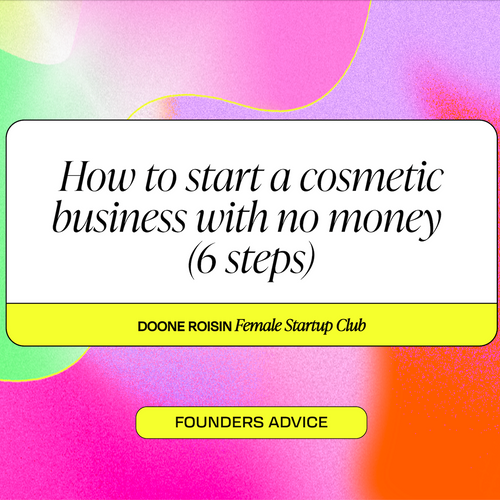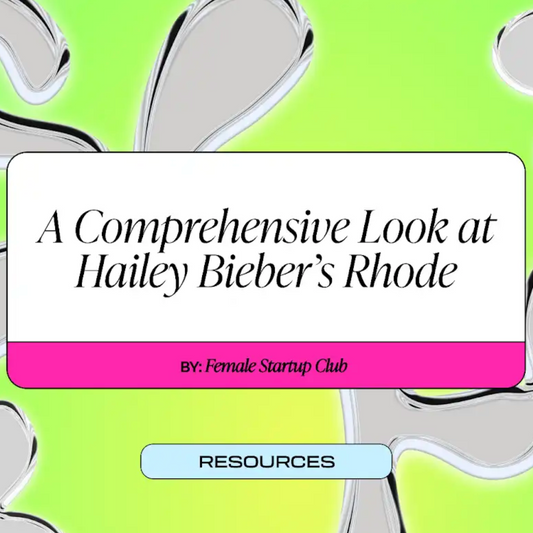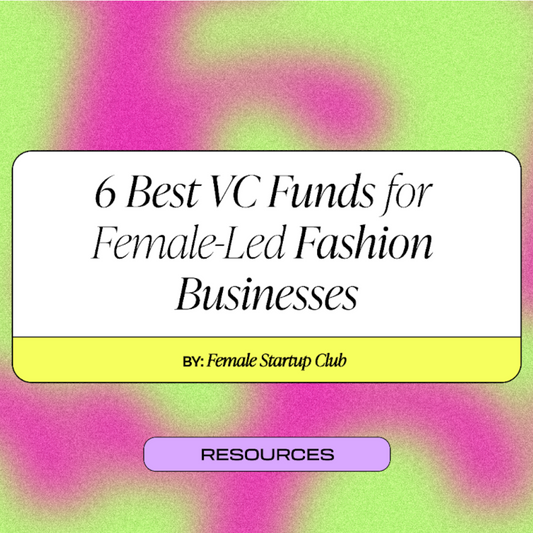Coral and her Co-Founder Wendy teamed up to redefine what it meant to build a luxury brand in today’s fashion landscape. They’ve been on a major journey in just 3 short years raising more than $23 million dollars in funding, expanding internationally at a rapid rate and being spotted on celebrities like Priyanka Chopra, Angelina Jolie, and Lady Gaga.
But how’d they do it? How’d they break through and stand out in a saturated market? Find out in this episode!

The Seed of an Idea
Even while working full-time at Medallion, Coral couldn’t shake the idea of starting her own luxury fashion brand. Despite facing skepticism from advisors who cautioned her against pursuing such an ambitious goal, she was driven by her passion. Coral recalls the moment vividly: "It wasn't the type of thing where somebody told me that this was crazy, and I just gave up. It became kind of an obsession." This unwavering determination led her to dedicate her nights and weekends to vetting her idea, seeking feedback from trusted advisors and industry experts alike.
Taking Baby Steps
With a commitment to making her vision a reality, Coral took her first crucial steps. She hired a lawyer and incorporated her business, transforming her idea from a dream into something tangible. But she knew she couldn’t do it alone. That’s when she reached out to her co-founder, Wendy. Their connection stemmed from a mutual friend, and Wendy's analytical nature made her a perfect partner. Coral had to convince Wendy that this venture was viable, which involved answering a lot of probing questions. "She asked the tough questions that made me think through every detail," Coral explains.
The Senreve Journey
In just three short years, Coral and Wendy have successfully raised over $23 million in funding, rapidly expanded internationally, and garnered celebrity endorsements from icons like Priyanka Chopra, Angelina Jolie, and Lady Gaga. Their commitment to excellence and a unique aesthetic set Senreve apart in a crowded market.
The Importance of Preparation
One of the key lessons Coral learned was the importance of being prepared. Despite Senreve not having launched yet, she ensured her vision was clear and tangible before approaching investors. She understood that top manufacturers, who work with numerous brands, would judge Senreve's uniqueness and differentiation. "It was critical to get them on board and excited about our brand," she emphasizes.
Financing the Dream
Financing a luxury brand can be a daunting task. Coral reflects on her approach: "Initially, I bootstrapped with my savings, but we quickly sought additional capital even before our launch." This decision allowed them to remain stealth for longer, giving them the time needed to ensure product quality. She highlights the importance of having investors who not only provide capital but also believe in the vision. These early supporters have become invaluable advisors, continuing to guide the brand’s growth.
Navigating the Funding Landscape
Coral acknowledges the challenges women face in fundraising. Statistics show that there are fewer women in senior leadership positions at investment firms, making it harder for female founders to find support. "It’s a reality we all have to grapple with," she notes. Coral emphasizes the need for thorough preparation, understanding the business model and unit economics, and crafting a coherent story to resonate with potential investors.
Advice for Aspiring Founders
When it comes to raising capital, Coral has some sage advice for women entrepreneurs:
-
Don’t Take Rejection Personally: Rejections can sting, but often they reflect the investor's circumstances rather than the value of your idea. "It’s about finding the perfect fit, much like dating," she explains.
-
Be Methodical: Speak to a variety of potential investors to find the right chemistry. You never know who will resonate with your vision.
-
Be Prepared: Practice your pitch, anticipate tough questions, and remain humble. Negative feedback can be incredibly valuable in refining your approach.
Conclusion
Coral Chung’s journey with Senreve serves as a powerful example of perseverance, passion, and strategic thinking in the competitive world of luxury fashion. By staying true to her vision and surrounding herself with supportive advisors and investors, Coral is making waves and redefining the luxury brand experience. For anyone looking to break into a saturated market, her insights are invaluable. How did Coral and Wendy break through and stand out in such a competitive landscape? Tune in to the full episode for more on their incredible journey!



